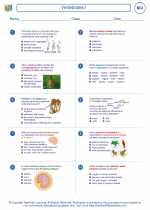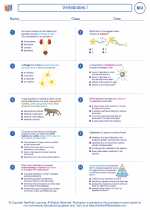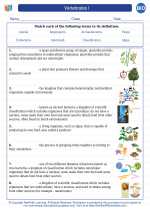Gene
A gene is a sequence of DNA that contains the instructions for making a specific protein or set of proteins. Genes are the basic unit of heredity and are passed from parents to offspring. They play a crucial role in determining the traits and characteristics of an organism.
Structure of a Gene
A gene is composed of specific sequences of nucleotides, which are the building blocks of DNA. These sequences include coding regions called exons, as well as non-coding regions called introns. The exons contain the information for protein synthesis, while the introns are spliced out during the process of gene expression.
Gene Function
Genes carry the genetic information that determines specific traits, such as eye color, blood type, and susceptibility to certain diseases. They also play a role in regulating the development and functioning of cells and tissues in an organism.
Study Guide
- Define a gene and explain its importance in heredity.
- Describe the structure of a gene, including exons and introns.
- Explain the role of genes in determining traits and characteristics of an organism.
- Discuss the function of genes in regulating cellular processes and development.
- Give examples of traits and diseases that are influenced by genes.
[Gene] Related Worksheets and Study Guides:
.◂Biology Worksheets and Study Guides High School. Vertebrates I

 Worksheet/Answer key
Worksheet/Answer key
 Worksheet/Answer key
Worksheet/Answer key
 Vocabulary/Answer key
Vocabulary/Answer key
 Vocabulary/Answer key
Vocabulary/Answer key
 Vocabulary/Answer key
Vocabulary/Answer key
